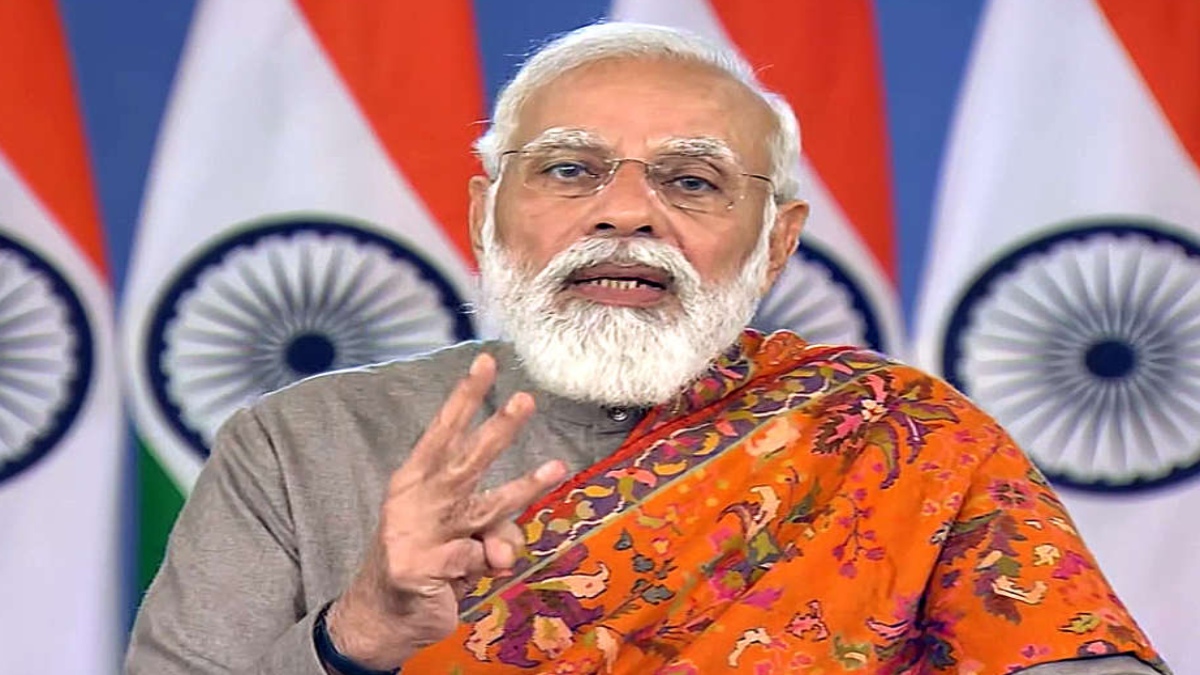


Highlighting the initiatives taken by the Union government to tackle the problems posed by the digital divide in the country, Prime Minister Narendra Modi on Monday expressed confidence that the digital divide is rapidly shrinking in India.
With the call for having innovation for ensuring “inclusion”, the Prime Minister mentioned that the Budget will help in implementing the National Education Policy. Addressing a webinar virtually on “Post Budget Seminar: Fostering Strong Industry-Skill Linkage”, the Prime Minister said, “Digital connectivity is what kept our education system alive in this time of a global pandemic. We are seeing how the digital divide is rapidly shrinking in India. Innovation is ensuring our inclusion.”
“This budget will help in implementing National Education Policy. National Digital University is an unprecedented step. The problem of shortage of seats can be resolved. There will be unlimited seats,” the Prime Minister said.
Notably, National Education Policy 2020 aims to pave way for transformational reforms in school and higher education systems in the country. The Prime Minister further added, “Be it e-Vidya, One Class One Channel, Digital Labs, Digital University, such educational infrastructure is going to help the youth a lot. This is an attempt to provide better solutions for education
to all, be it for villages, poor, Dalit, backward, tribal, in the socio-economic setup of India.”
The Prime Minister also spoke on World Mother Language Day. “Today is also World Mother Language Day. Education in the mother tongue is related to the mental development of children. The teaching of medical and technical education in local languages has started in many states,” he said. In order to facilitate efficient and speedy implementation of Budget announcements, the Centre is holding a series of webinars across various key sectors. The objective is to brainstorm with experts from the public and private sectors, academia and industry and identify strategies on how best to move forward towards the implementation of various issues under different sectors.
The PM hailed the Union Budget presented in Parliament on 1 February and said that a lot of emphasis has been laid on the education sector. The Prime Minister highlighted five points that can help the young generation become the future leader of the country. The Prime Minister said, “Our young generation is the future leader of the country. So empowering today’s young generation means empowering India’s future. In the budget of 2022, a lot of emphasis has been laid on five things related to the education sector.”
“First—Universalization of Quality Education. Important decisions have been taken to expand our education system, improve its quality and increase the capacity of the education sector,” he said. “Second is Skill Development. A digital skill development ecosystem should be created in the country. According to the demand of the industry, skill development should be done, industry linkage should be better. Attention has been given to it,” he said.
The Prime Minister said, “The third important aspect is urban planning and design. Acknowledging the ancient experience and knowledge of India at present, it is necessary to integrate it in our education today.” “The fourth important aspect is-Internationalization. World-class foreign universities should come to India, which are our industrial areas, such as GIFT City, institutes associated with FinTech should come there, it has also been encouraged.”
“The fifth important aspect is—AVGC—i.e. Animation Visual Effects Gaming Comic. All of them have immense employment opportunities, there is a huge global market.” In order to facilitate efficient and speedy implementation of Budget announcements, the Centre is holding a series of webinars across various key sectors. The objective is to brainstorm with experts from the public and private sectors, academia and industry and identify strategies on how best to move forward towards the implementation of various issues under different sectors.